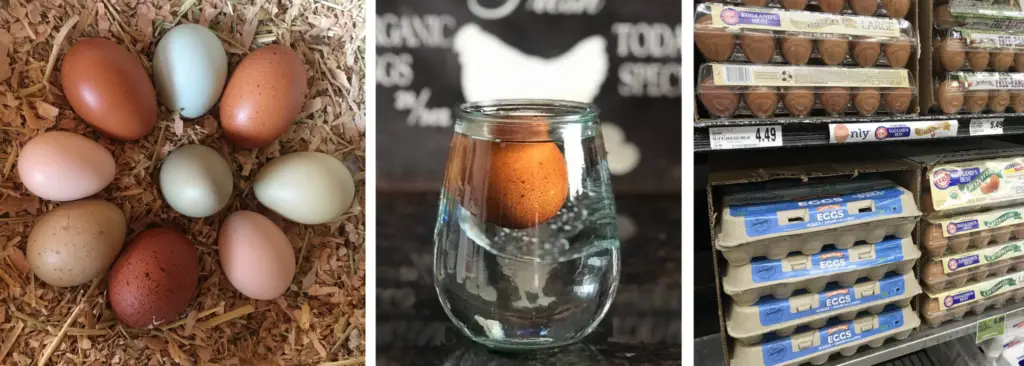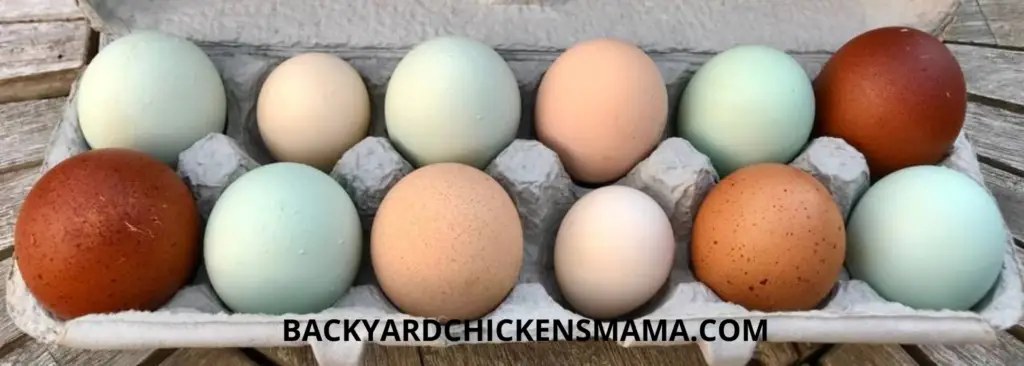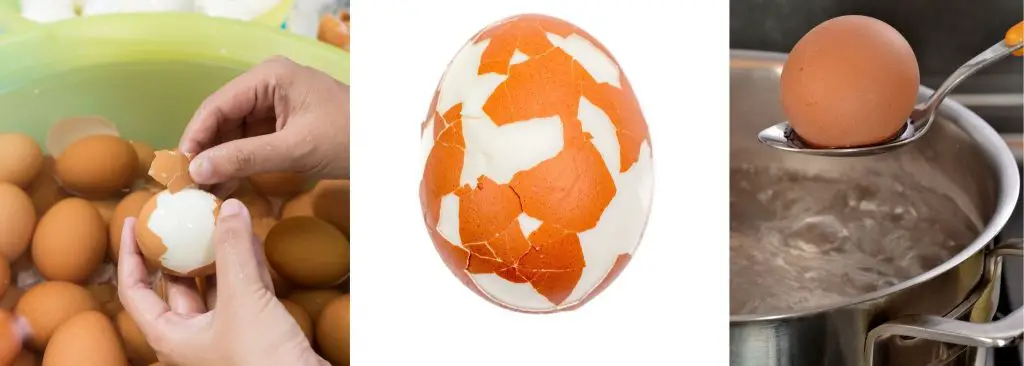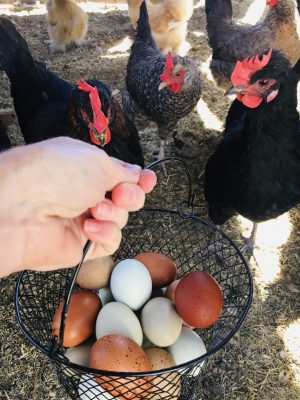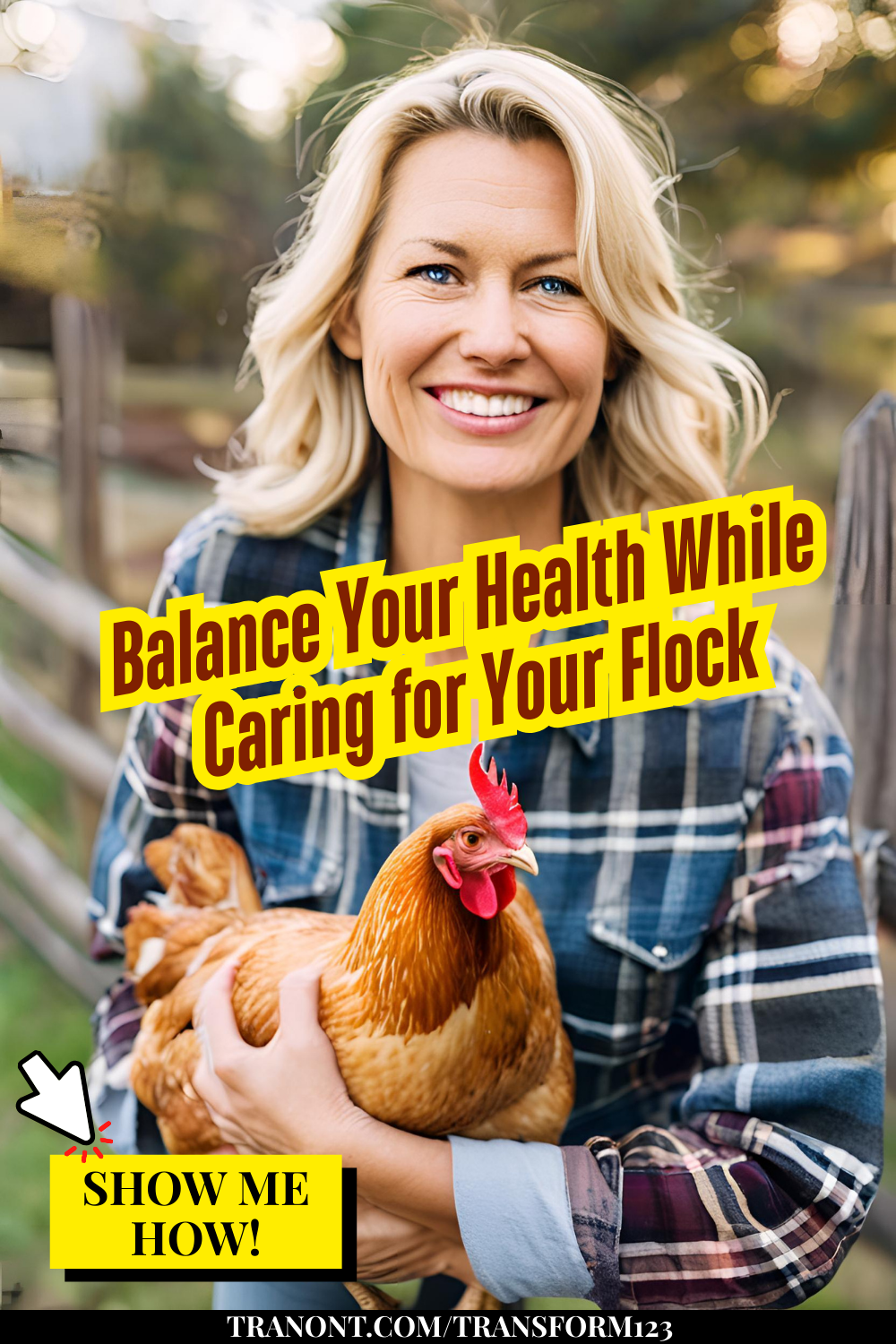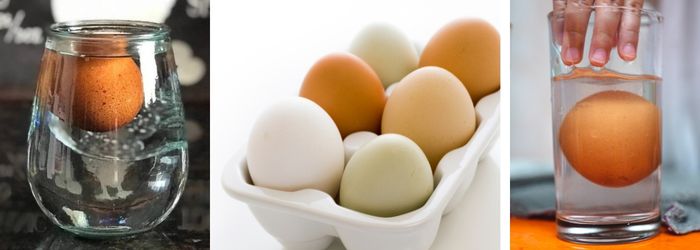
We’ve all been there….not knowing exactly how old a carton of eggs in the refrigerator is or how long the farm fresh chicken eggs have been sitting on the countertop for. It’s important to know if your eggs are safe to consume. Luckily, there is a fresh egg water test that can help you to determine how old your eggs are so you can make the decision to keep or toss them.
1. Why do Old Eggs Float in Water?
Old eggs float because they contain a larger air pocket than a fresh egg. When a chicken lays an egg, the contents inside the egg contracts. This causes a small air cell or “air pocket” to form at the top of the fat end of the egg.
Why does an air pocket form inside eggs? When the contents of the egg contracts, an air pocket forms inside of eggs. This happens because the egg is being brought from a very warm temperature of 105℉ inside the hen, to a much cooler outside temperature.
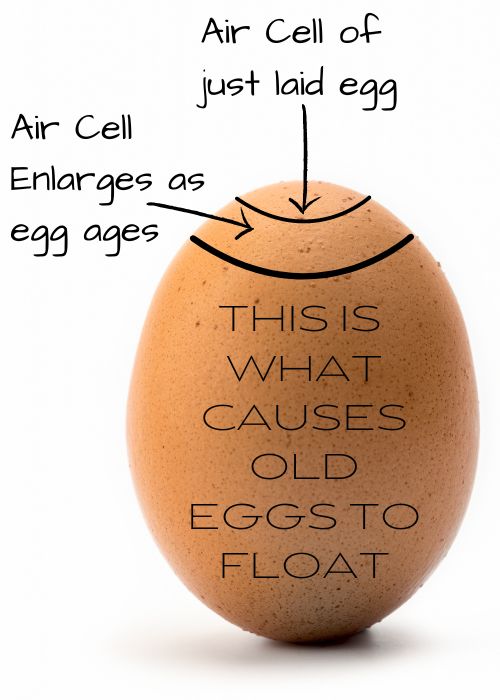
As an egg ages, moisture is released through the pores of the egg and is replaced with more air. This is why an older egg will have a larger air pocket and float to the surface.
Generally, the larger the air pocket, the older the egg. Also, the larger the air pocket, the increased likelihood of the egg being contaminated with bacteria or considered “bad.”
2. How to Test Eggs for Freshness [Fresh Egg Water Test]
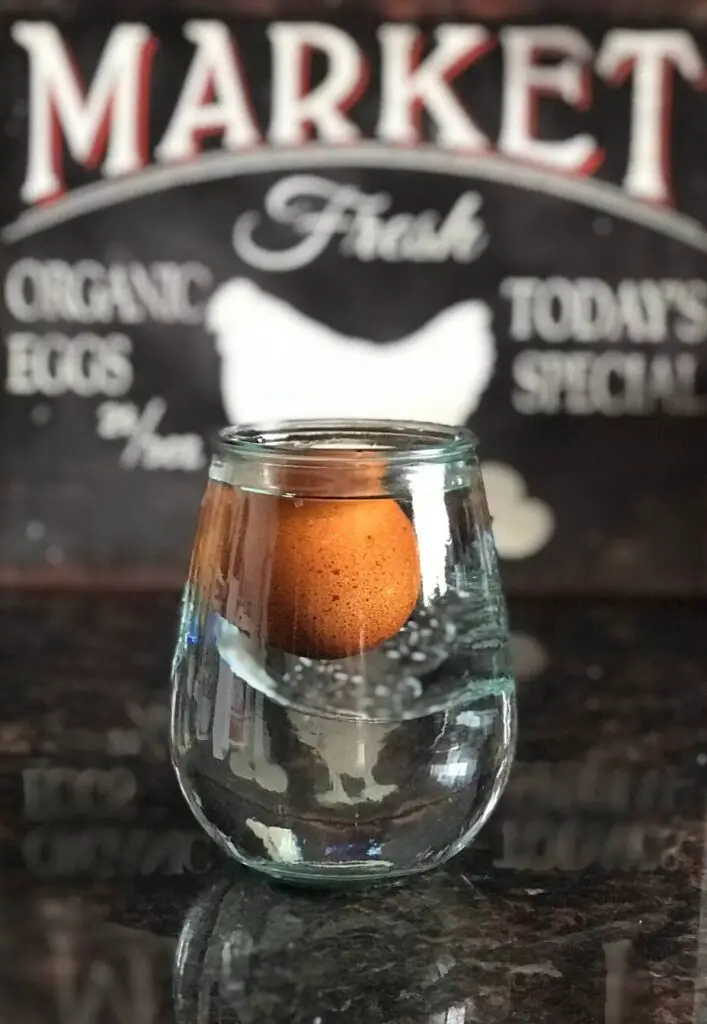
Materials Needed for Fresh Egg Water Test
- Clear glass
- Lukewarm water(slightly warmer than room temperature)
- The reason you want to use slightly warmer than room temperature water is to prevent bacteria that is on the outside of the shell from being drawn into the egg. Using cold water will cause the egg membranes to retract. Any bacteria that is on the outside of the egg will be absorbed through the egg membranes, causing the egg to become contaminated.
- Eggs
Step 1: Fill a clear glass of lukewarm water.
Step 2: Wait until water stops moving.
Step 3: Gently place an egg into the glass of water.
Step 4: Is it ok to eat eggs that float to the top? Should I throw away eggs that float? It is my personal opinion to discard any eggs that float to the top. I do not recommend feeding them back to your chickens either, as they can potentially have bacteria or other harmful diseases present. It isn’t worth the risk.
Step 5: FOR QUESTIONABLE EGGS:
- Sniff Test: if the eggs smell “off” at all, discard them.
- Cracks and Discharge: Check for cracks or any discharge coming from the egg. If the eggs have any cracks, they are prone to bacterial growth inside. If you see cracks, discard them.
- Crack the eggs open in a separate bowl. If the eggs look questionable or smell odd at all, discard them.
Step 6: For all eggs, questionable or good, always thoroughly cook them. Eggs need to reach an internal temperature of 160℉ in order to kill bacteria.
Just because an egg sinks to the bottom doesn’t necessarily mean that it is “SAFE” to eat. Always check eggs before cracking them for any discharge or foul smells.
It is also a good practice to crack eggs into a separate bowl, just in case you notice a smell or bacterial growth after the egg is cracked.
| WHAT HAPPENS TO THE EGG WHEN YOU PLACE IT INTO A GLASS OF WATER? | AGE OF EGG |
|---|---|
| EGG SINKS TO BOTTOM AND LAYS IN A HORIZONTAL POSITION | FRESH EGG, NOT EXPIRED |
| EGG FLOATS IN MIDDLE OF GLASS OR STANDS UPRIGHT ON BOTTOM OF GLASS | AGING, BUT LIKELY STILL GOOD TO EAT. |
| EGG FLOATS TO THE TOP | OLD OR “BAD” EGG DISCARD EGG |
3. Can You Get Sick from Eating Old Eggs?
Old eggs are more likely to carry bacterial diseases that can make you sick if you eat them, especially if they are eaten raw or if they are undercooked.
Bacterial Diseases Transmitted Through Old, Undercooked or Raw Eggs
- Salmonella
- E.coli
- Campylobacter
Symptoms of Salmonella, E.Coli and Campylobacter
- Diarrhea
- Vomiting
- Fever
- Abdominal Cramping
4. How Long do Eggs Last in the Refrigerator?
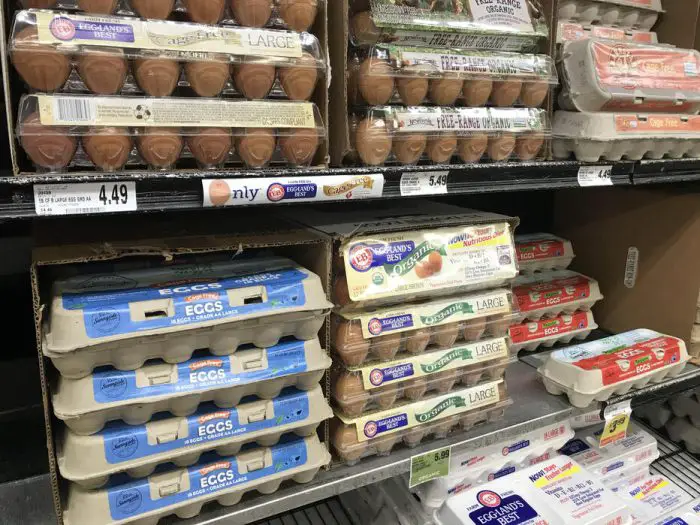
Eggs that you buy in the refrigerated section of a grocery store have been washed and many have even been chemically sanitized prior to shipment to your local grocery store. They must be kept refrigerated at a consistent temperature of at least 45℉ and consumed within a month.
“FACT: By law, a farmer has 30 days to get a freshly laid egg into a carton and another 30 days before it needs to be sold! That means that the egg can be as old as two months old when it hits the grocery store shelf!“
9 Important Facts: How Long Are Chicken Eggs Good For?
How Can You Tell How Old a Grocery Store Egg Is?
Grocery store eggs in the United States are a little more difficult to get an exact age of. The reason for this is that in the United States, farmers have up to 30 days to get eggs packaged and another 30 days to get these eggs sold. So, once you purchase eggs from your local grocery store, they can already be 2 months old!
What is a Julian Date on the Egg Carton?
Eggs in the supermarket are packaged and marked with what is called a “Julian Date.” These numbers range from 1-365 and correspond to the day of the year in which they were packaged. For instance, eggs that were packaged on August 29th will have a Julian Date of 241 and eggs that were packaged on January 1st, have a Julian Date of 001.
5. Should You Wash Farm Fresh Eggs?
Right before a hen lays an egg, it is covered with what is called a “bloom.” This protective coating is what helps to prevent bacteria from penetrating through the pores of the egg shell. It’s ok to wash farm fresh eggs, but just know that you will be removing this protective coating and must follow a few food safety rules.
- Only wash eggs in lukewarm water. This is to prevent any bacteria that is on the outside of the egg from penetrating inside of the egg. Washing eggs in cold water will cause the egg membranes to retract bringing any dirt or bacteria that is on the outside egg shell, inside. This increases the chances of the egg growing bacteria inside.
- Refrigerate immediately after washing. If you choose to wash your farm fresh eggs, they must be put into the refrigerator right away and kept there until ready for use.
Did You Know?
Did you know that only farm fresh eggs contain a protective coating or “bloom” on the outer part of the shell? Eggs that you buy at the supermarket, in the refrigerated section, have been cleaned with a sanitizer, washing this protective bloom away.
For more information on egg safety, please refer to the the FDA Egg Safety Guide.
CONCLUSION: 5 Things You Need to Know-Fresh Egg Water Test
- Old eggs will float in water because as an egg ages, it releases moisture and this moisture is replaced with oxygen. This “air” allows it to float in the water.
- When should you not eat an egg? If you perform a fresh egg water test and the egg floats to the top of the water, you should not eat it.
- You can get sick from eating old eggs, especially if they are raw or undercooked. Bacterial diseases that are common are salmonella, E.coli and campylobacter.
- Supermarket eggs should be kept in your refrigerator at at least 45℉ and used within 1 month.
- Farm fresh eggs do not need to be washed and will last longer if they aren’t. If you choose to wash them, they must be stored in your refrigerator until ready for use (for up to 3 months).

